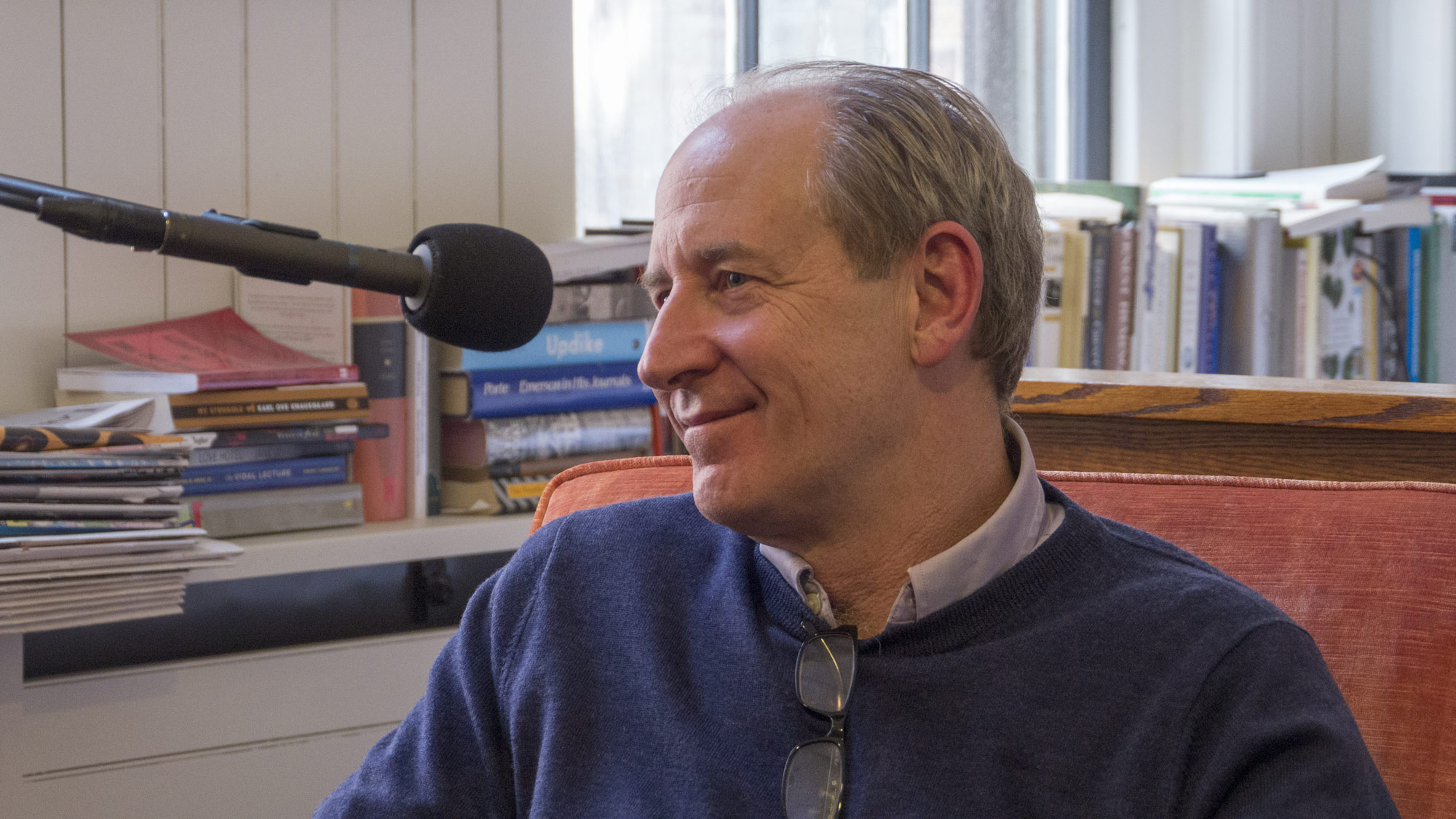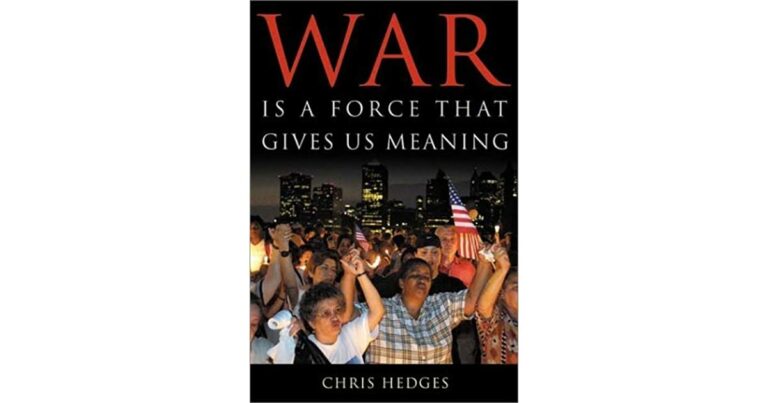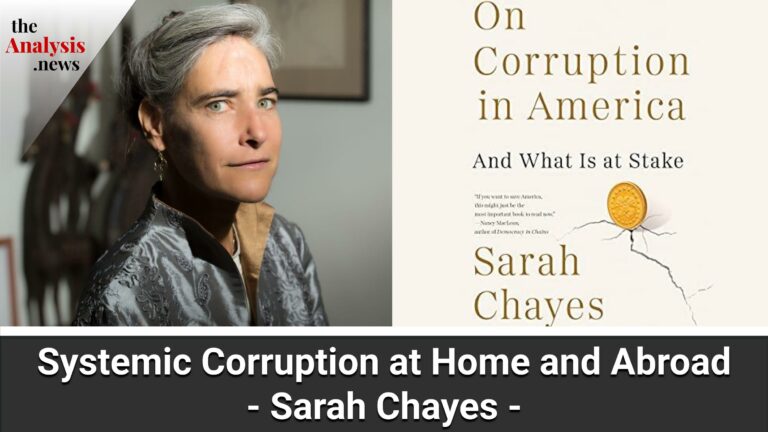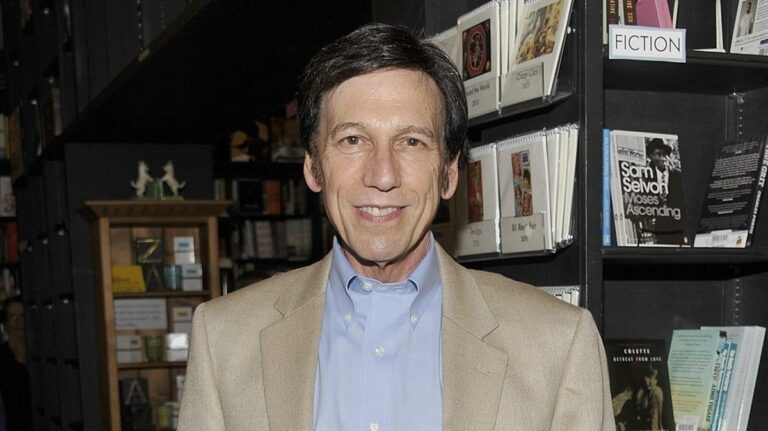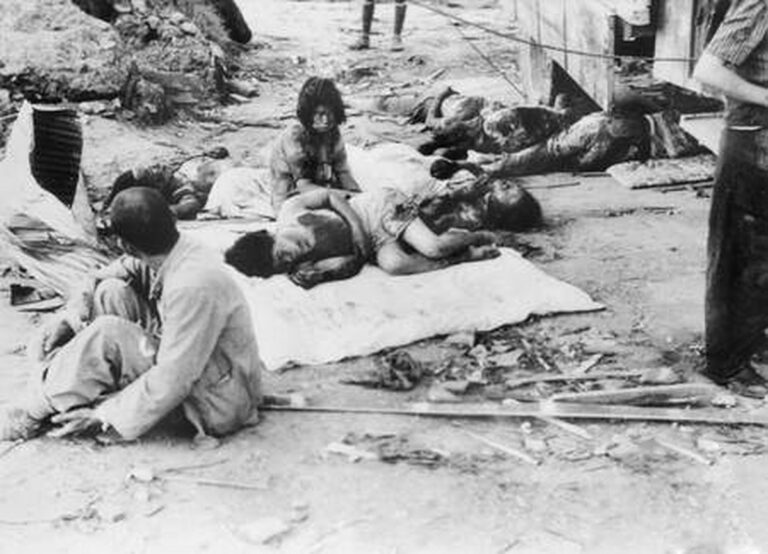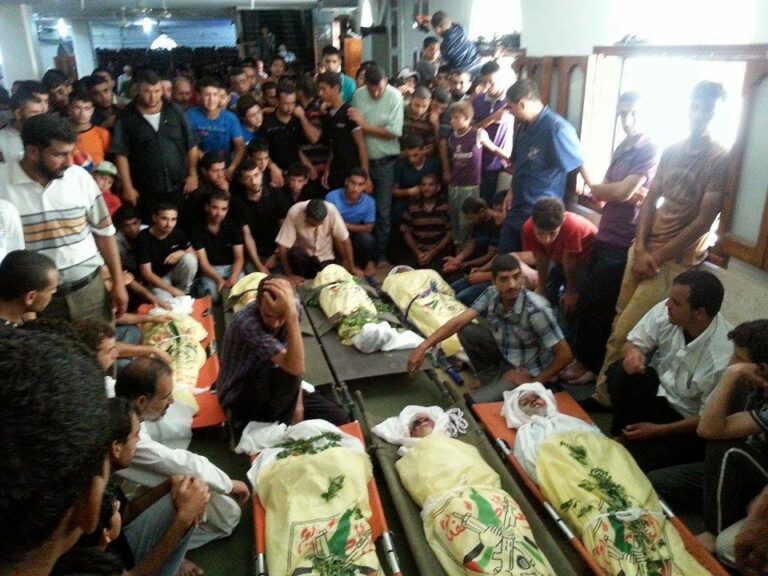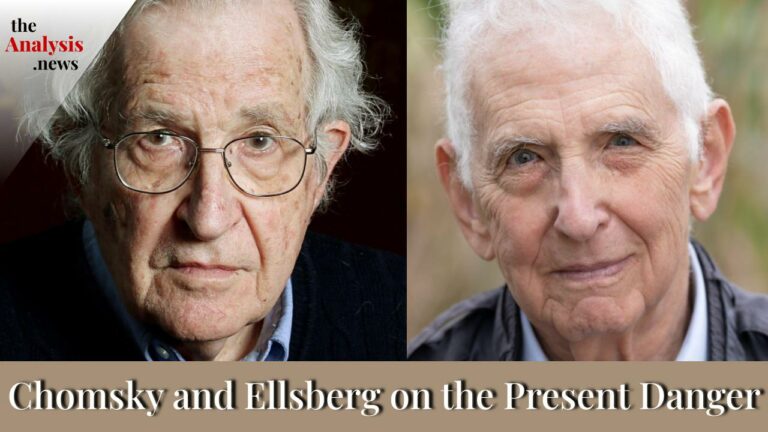“America Does Bad Things for Good Reasons” – Christian Appy on RAI (1/5)
This interview was originally published on May 26, 2015. On Reality Asserts Itself, Mr. Appy, author of “American Reckoning: The Vietnam War and Our National Identity”, discusses growing up with a broad faith that America is always an indispensable and invincible force for good in the world – and the seeds of his disillusionment with Americanism.
PAUL JAY, SENIOR EDITOR, TRNN: Welcome to The Real News Network, and welcome to Reality Asserts Itself. I’m Paul Jay. America does bad things, but it always does them for good reason. It always does them for the greater good. Well, that’s the mythology. Everyone else, all of America’s enemies, they do bad things, too, but they do it for bad reasons. They do it to get rich. They do it for self-interest. They do it ’cause they’re megalomaniacal dictators. America does things for the greater good. Some people call it American exceptionalism. In the book American Reckoning: The Vietnam War and Our National Identity, by Christian G. Appy, he writes, the Vietnam War and the history that followed exposed the myth of America’s persistent claim to unique power and virtue. Despite our awesome military, we are not invincible. Despite our vast wealth, we have gaping inequalities. Despite our professed desire for global peace and human rights, since World War II we have aggressively intervened with armed force far more than any nation on earth. Despite our claim to have the highest regard for human life, we have killed, wounded, and uprooted many millions of people and unnecessarily sacrificed many of our own. I appreciate that in this he, Mr. Appy, writes with millions of people died and then the American deaths, because almost everyone in America has to write, you know, 1,000, 2,000 American deaths and then 1 million of this or that–in Vietnam I guess it’s 50,000 American deaths, but even then, that always comes before a million or more Vietnamese and Cambodians and Laotians and so on. At any rate, we’re going to talk about American history. We’re going to talk about the centrality of the Vietnam War to understanding today’s American exceptionalism. And joining us in the studio is Christian Appy. Thanks for joining us.
CHRISTIAN G. APPY, AUTHOR, AUTHOR, AMERICAN RECKONING: Thanks for having me, Paul. JAY: So, Mr. Appy is professor of history at the University of Massachusetts Amherst. He’s the author of three books about the American war in Vietnam. His latest book is American Reckoning: The Vietnam War and Our National Identity. His book Patriots: The Vietnam War Remembered from All Sides won the Massachusetts Book Award for Nonfiction in 2004. He’s also taught at Harvard and MIT. So, as most of our viewers know, in Reality Asserts Itself we usually start with a little bit of personal back story. So we’re going to do that with Christian. So you grow up where?
APPY: Well, I was born in Georgia, lived there for nine years, but have been in New England ever since. So I was really in Connecticut the years that the war was escalating and unfolding, and turned 18 in 1973, the year the draft ended, the year the final American troops were brought out of the war. So in many respects the war was really off in the distance. Nevertheless, it was possible for even a pretty secure kid to feel the emotional undertow of that war. It was really ever-present in the media and in the American consciousness. And I felt it in some visceral way as a horrible thing.
JAY: Your family came to United States in late 19th century from where?
APPY: The Netherlands.
JAY: And you told me before that your father had voted for Nixon and your mother voted for Kennedy. I mean, you come up in the American school system. I mean, my background was Canadian, and I know when I went to grade one for a few months in Los Angeles, I was actually shocked with putting my hand and going–I mean, actually, I wouldn’t do it. I refused to do it.
APPY: Right. Well, that was me. I mean, one of my first memories at age five or six, Kennedy had just been elected and I was watching him on a small black-and-white TV screen, and don’t remember anything, probably didn’t understand what he was saying, but remember being riveted and fascinated by him. And my parents were chatting in the background. And in my memory, I remember turning on them and saying, “The president is speaking,” you know, that sort of widespread reverence for the office of the presidency. It was very much a part of ’50s and even into the ’60s culture. And trust in government was at really high levels. Something like 75 percent of Americans would have told pollsters that they trusted the government to always do the right thing.
JAY: Which is now something–what is it? Forty or 30 percent or something?
APPY: Thirty. Yeah. By the end of the Vietnam War, really, it completely collapses, and it’s pretty much stayed there ever since.
JAY: Actually, just we have a–there’s a new poll came out recently. Americans’ confidence in the three branches of government is at or near record lows, according to a major survey. Twenty-three percent of people say they have a great deal of confidence in either the Supreme Court, 11 percent in the executive branch, and 5 percent in Congress. By contrast, half, 50 percent, have confidence in the military. I mean, I think people have pretty good reason not to have confidence in government, but that’s another conversation. You grow up with your hand, saying, I pledge allegiance to the United States of America, you–love of country, love of flag. The mythology or the narrative of American exceptionalism, as you describe, essentially, what the religion of Americanism is, had to have been part of you.
APPY: Of course. Yeah. I mean, it’s deep in our history. I mean, it really goes all the way back to the beginning. But the heyday of this broad faith that we are always and everywhere indispensable and invincible force for good in the world, that we’re always on the side of democracy and freedom and human rights, really reached its peak, I think, in the 15 or even 20 years after World War II, from which we emerged far better off than and more powerful than any other country by far.
JAY: Which are very formative years for you personally. So when do you–.
APPY: Yeah.
JAY: –I mean, it’s no big surprise here that your book is going in the other direction. So when does this start to unravel for you? But, also, what does it mean to you personally to have–much of your personal identity has to start unraveling, in a sense, when your sense of national identity also unravels.
APPY: Well, I think my parents did me a favor in the sense that they encouraged open-mindedness. And so it wasn’t as wrenching as it was for some Americans. But I do remember this one moment when my father sat the family down, my sister and myself, to read from us, right after dinner, which was completely unprecedented, from this long magazine article about the Vietnam War. Again, I don’t remember any of the details, but it was a negative, critical article, and it clearly had kind of flipped him on the war. And so I began to think more about it. And really it was possible, even as a small kid, to feel the power and the weight of that experience. And so, by the time I got to college in the ’70s, I really felt it as a kind of obligation, even a moral obligation, to learn more about it, its details.
JAY: Were you ever involved in antiwar protests?
APPY: No, I had no dramatic personal connection to it at all. I knew not a single person who had fought in the war. Even my older sister was not deeply involved in the antiwar movement. So it was really just a distant experience. But I did in a way feel sort of some sense of missing out on a moment in history where young people really believed they could make a difference in the world. And in my own naive way, I remember thinking that, wow, we’ll never have another president like the Richard Nixon, or we’ll never have a war like Vietnam. And so the undermining of that faith over the years has continued to push me back into that subject. You know, I don’t think I ever intended to write a third book about the Vietnam War, but when I began it, what prompted me in part was the fact that we found ourselves once again in not one, but two wars with such troubling parallels to the Vietnam War, mired in these seemingly endless wars
JAY: Afghanistan, Iraq.
APPY: And Iraq, fought under false pretext, in which we sent troops to faraway places, where they were widely perceived as foreign invaders, where their mission, this impossible mission, was to fight a counterinsurgency and at the same time somehow miraculously win hearts and minds, and also to prop up countries that didn’t have the support their own people.
JAY: And also as–one of the important themes in your book with a very similar situation as Iraq, not only for what the objective of winning the war in Iraq might achieve, but almost more to prove that once again America’s ready to shed blood for its geopolitical objectives.
APPY: Right. I mean, that’s one way in which 9/11 really, through–whatever constraints the memory of Vietnam had put into place, those really went out the window. I mean, from 1975, when the war ended, to 9/11, that 25-year period, we didn’t downsize, I mean, we didn’t stop becoming this gigantic imperial presence in the world, but we were a little bit more careful about the kinds of interventions we engaged in. And in that whole period, fewer than 1,000 Americans died in warfare. Hundreds of thousands of other people died, but we fought these–.
JAY: This is still the post-Vietnam–.
APPY: Post-Vietnam.
JAY: The reluctance to get involved again.
APPY: There was some–there was at least some break on it. But, you know, after 9/11 all of that sort of [crosstalk]
JAY: Which is explicitly talked about, if not even called for, in this document Project for a New American Century, this document the neocons that come to power as part of the Bush administration–
APPY: Exactly.
JAY: –actually come out and say, you know, to achieve our new set of objectives, which is essentially to assert U.S. power around the world, now that there’s no opposing superpower, but we’ll never get American public opinion on board if there’s not another Pearl Harbor.
APPY: Right.
JAY: And then they get it.
APPY: Right. Exactly. Well before 9/11, there was this idea that despite the victory in the Cold War, we needed to double down and actually have what they would refer to as full-spectrum dominance, which is really mastery of the globe, not just the land and the seas, but the airspace, the outer space, cyberspace.
JAY: Media,–
APPY: Media. Right.
JAY: –which they’re still trying, given that they want to listen to everything everybody says across the globe.
APPY: Right. Well, that’s one of the lessons they learned is that–after Vietnam is they’re going to have to be much smarter about managing the news, and sometimes sort of outright censorship or denying access to war zones, as in Grenada. The media wasn’t even–you know, had to tag along in the aftermath of that, or pooling, or even the sort of very shrewd idea of embedding reporters, in hopes that they would identify with the soldiers among whom they were living and who were protecting them.
JAY: Which they did to a large extent.
APPY: Yeah.
JAY: Or feeding stuff to the–
APPY: Or providing their own–right, providing their own news [crosstalk]
JAY: –to The New York Times,–
APPY: Yeah.
JAY: –and helping The New York Times help prepare for war with them.
APPY: Right.
JAY: Back to you personally, still, you grow up believing with the exceptionalist narrative. And as I say, that Americanism is so much embedded in people’s personal identity. As you start to unravel the history of Vietnam, does it–when do you say, this is–I kind of grew up with a bunch of lies?
APPY: Yeah. Well, it’s a long process. And I think we can’t really understand how profound the soul-searching of the ’60s was and the degree to which everything came into question and debate–and there was, in my mind, this great sort of political and moral awakening that challenged American exceptionalism. We can’t really understand that unless we recover how deep the faith was that preceded it. So I think what happened is this was a generation like my own, that grew up in a deeply patriotic culture, or at least a sort of almost blindly believing culture, so that when evidence to the contrary began to surface–and often did it very dramatic ways, certainly with the civil rights movement, when we were seeing people fire hosed–.
JAY: Can I interrupt you just for a sec?
APPY: Yeah, sure.
JAY: ‘Cause I think you need to go back one more step,–
APPY: Okay.
JAY: –because it’s actually quite an amazing achievement of the American media, political class, intelligence class, how they get post-World War II people, generations, who–like, in 1946 there’s more strikes in the United States than before or after–historic number of strikes. People come back from Europe saying, we fought for democracy; let’s have some. Unemployment. Tremendous inequality. Systemic racism. I mean, so then they are able, with McCarthyism and the House Un-American Activities Committee, to purge all these kind of democratic forces and get us into the Leave It to Beaver ’50s with this incredible false narrative. I mean, it’s almost as big as–I almost compare it to how Israel was able to create Hebrew as a national language out of nothing.
APPY: Right. No, it is a very successful political campaign. And it really starts almost in the very aftermath of World War II. When Truman first declared this global policy of containment, the Truman Doctrine, his advisers and the senator Vandenberg said, listen, if you want this to get any backing from Congress and the American people, you’re going to have to scare the hell out of the American people. He actually said that to him. And that’s when all the sort of the inflated exaggeration of domestic anti-communism, as well as foreign aggressors–. You know, the Soviet Union was really billed as another form of Hitler. They called it in those days “red fascism”. That was sort of inevitably set out to conquer the world.
JAY: Well, every high school textbook was fascism, communism, two forms of totalitarianism, like, complete equality between the two, no understanding of what each one was. But the other thing, in terms of this narrative of American exceptionalism as we head into the late ’40s and ’50s is the ability to justify, certainly after Hitler one of the–maybe the great war crime of the 20th century, the dropping of the atomic bomb on Hiroshima and Nagasaki, and then justify that as part of this narrative, like, we do bad things for good reasons.
APPY: Right. And that, too, is a project of historical–a little bit of historical amnesia, because even at the time there was significant dissent. Something like five out of the seven five-star generals and admirals in 1945 believed that the dropping of atomic weapons was militarily unnecessary to end the war. And few of them had moral objections as well. But that–.
JAY: Including Eisenhower.
APPY: Yes, Eisenhower, and Admiral Leahy most of all. But those stories fall out of the narrative, and what we’re left with–and it’s still there with us–is this idea that it had to be done to end the war and to, quote-unquote, save lives, Japanese as well as our own.
JAY: So just–in our next segment, we’re going to start going through the history. So just to finish off in terms of personal story: so when for you is there a moment or is there sort of a moment where you say, okay, this is all bullshit?
APPY: I would say Kent State. I have a very vivid memory of being in seventh grade social studies class, and before we got started there was a New York Times lying around, and I saw the cover with the horrifying picture of the young girl with her arms spread out in horror over the body of one of the slain students.
JAY: Just very quickly, we have a lot of young viewers who don’t know the story of Kent State. They barely know the story of Vietnam.
APPY: There was a nationwide student strike in opposition to President Nixon’s decision to invade Cambodia in late April 1970. And it was shocking to the entire country, because he had in the year leading up to that promised in effect that we were going to begin to draw down the war, and this seemed to be, like, a completely unjustified escalation, and indeed expansion, of the war into a formerly neutral country. At the time, we didn’t even know that he had been secretly bombing Cambodia for the whole prior year. So campuses and much of the country was up in arms. And in the Midwest, which was not necessarily thought of as a hotbed of radicalism, but it had spread even to leafy campuses in Ohio, in broad daylight at noontime four college students were gunned down by the National Guard and killed and another nine wounded. So it was a real–.
JAY: Middle-class white kids.
APPY: Yeah, middle-class white kids. And I remember my classmate Doug Roberts said he thought the killing was justified, that the National Guard was right. And that just–at this gut level, I said, no, that kid can’t possibly be right. You know, it’s murder. So that was probably my first serious political debate. But, you know, I went on from there.
JAY: So, just to finish off, when do you decide you’re going to be a historian?
APPY: When I was in college in the mid ’70s I felt like I was really the beneficiary of a lot of the best that had come out of the ’60s in terms of questioning all kinds of things. And many of my younger professors had been deeply moved by the politics of the ’60s. And the whole way in which history was being done then was going through a major kind of transformation. It had started earlier, but by the ’70s it was really–books were being published that took as just axiomatic the idea that everybody’s history counts and that it’s really important to do history–as they said in those days, before it became a cliché, it should be done from the bottom up. You know. And so things like oral history would be important, recovering the history of people who don’t leave a lot of documents behind. So I sort of began thinking of myself as a social historian, a labor historian. And then, when I went on to do my first book, it involved interviewing a lot of Vietnam veterans, which was a way of recovering a kind of working-class history of their backgrounds and early lives, but also a way to fulfill that obligation I felt to learn about the Vietnam War.
JAY: Okay. We’re going to pick up our series of interviews with Christian and dig into his book and Vietnam and the whole theory or identity of American exceptionalism. Thanks for joining us, and please join us for the next segment of Reality Asserts Itself.
“Christian Gerard Appy is a professor of history at the University of Massachusetts Amherst. He is widely known as a leading expert on the Vietnam War experience. The most recent of his three books on the subject is American Reckoning: The Vietnam War and Our National Identity.”
